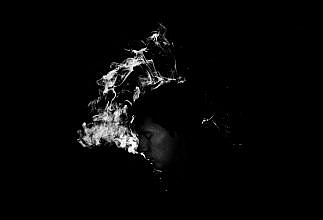This movie was one of those ones you have to rewatch to understand some of the delicate psychological shifts in the movie. James McAvoy’s performance is eye-penetrating. He stars in almost all of his movies.
The main character, Bruce, is an actual manifestation of resentment. He’ll do anything to secure his promotion—lie, manipulate, sabotage colleagues. Although he seems confident, he is dealing with severe psychological issues, unresolved trauma, and self-loathing.
As the movie progresses, his mental state’s decline sharpens: his grasp on reality weakens through hallucinations, delusions, and erratic behavior. Close to the end of the movie, when he wears his wife’s clothes, we see he’s dissociated from reality, and his ego has become unable to distinguish its boundaries. His fractured ego tries to punish himself, to become “her,” to feel close to her again—especially since he imagines she might still call him.
Even though he shows signs of major depressive disorder, including:
-
Chronic low mood beneath his aggression,
-
Suicidal ideation,
-
Hopelessness and loss of interest in life,
he also shows some manic traits, such as:
-
Grandiosity,
-
Hypersexuality,
-
Impulsivity,
-
Reckless behavior.
Considering his depressive traits (crippling guilt, self-loathing, apathy, suicidal tendencies), in addition to his hallucinations (conversations with animals and people), there is a possibility for him to be diagnosed with schizoaffective disorder or bipolar I with psychotic features.
All through the film, his hedonistic approach to life can be interpreted as self-sabotaging, which can be rooted in the shame and guilt he’s grappling with. His defense mechanisms are strongly at work—especially projection, displacement, and splitting. He presents different versions of himself (tough cop, sexual deviant, confident man) to hide his fragile, grieving self.
The movie is filled with Bruce’s delusions and his role as an unreliable narrator that shapes the story. His untreated mental illness has consumed reality, in a way that his portrayal of the world is warped and distorted.
This movie is an amalgamation of grief, trauma, and depression. Filth isn’t just a study of a corrupt cop; it’s a study of a man imploding under the weight of untreated mental illness.
I think I need to mention that this movie is based on a novel by Irvine Welsh. His genre is an integration of mental illness, addiction, masculinity, identity, class struggles, crime, moral ambiguity, unreliable reality, and inner monologues.
In addition to Filth (1998), he’s famous for Trainspotting (1993), and also these three novels:
-
The Acid House (1994)
-
Porno (2002) – sequel to Trainspotting
-
Skagboys (2012) – prequel to Trainspotting.

